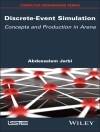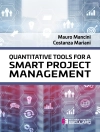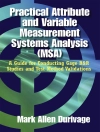KES International (KES) is a worldwide organisation that provides a professional community and association for researchers, originally in the discipline of Knowledge Based and Intelligent Engineering Systems, but now extending into other related areas. Through this, KES provides its members with opportunities for publication and beneficial interaction. The focus of KES is research and technology transfer in the area of Intelligent S- tems, i.e. computer-based software systems that operate in a manner analogous to the human brain, in order to perform advanced tasks. Recently KES has started to extend its area of interest to encompass the contribution that intelligent systems can make to sustainability and renewable energy, and also the knowledge transfer, innovation and enterprise agenda. Involving several thousand researchers, managers and engineers drawn from u- versities and companies world-wide, KES is in an excellent position to facilitate – ternational research co-operation and generate synergy in the area of artificial intel- gence applied to real-world ‘Smart’ systems and the underlying related theory. The KES annual conference covers a broad spectrum of intelligent systems topics and attracts several hundred delegates from a range of countries round the world. KES also organises symposia on specific technical topics, for example, Agent and Multi Agent Systems, Intelligent Decision Technologies, Intelligent Interactive M- timedia Systems and Services, Sustainability in Energy and Buildings and Innovations through Knowledge Transfer. KES is responsible for two peer-reviewed journals, the International Journal of Knowledge based and Intelligent Engineering Systems, and Intelligent Decision Technologies: an International Journal.
Inhoudsopgave
Advances in Multimedia Services in Intelligent Environments – Software Development Challenges and Solutions.- Evaluating the Generality of a Life-Cycle Framework for Incorporating Clustering Algorithms in Adaptive Systems.- A Distributed Multimedia Data Management over the Grid.- A View of Monitoring and Tracing Techniques and Their Application to Service-Based Environments.- An Ontological SW Architecture Supporting Contribution and Retrieval of Service and Process Models.- Model-Driven Quality Engineering of Service-Based Systems.- Application of Logic Models for Pervasive Computing Environments and Context-Aware Services Support.- Intelligent Host Discovery from Malicious Software.- Swarm Intelligence: The Ant Paradigm.- Formulating Discrete Geometric Random Sums for Facilitating Intelligent Behaviour of a Complex System under a Major Risk.- Incorporating a Discrete Renewal Random Sum in Computational Intelligence and Cindynics.











